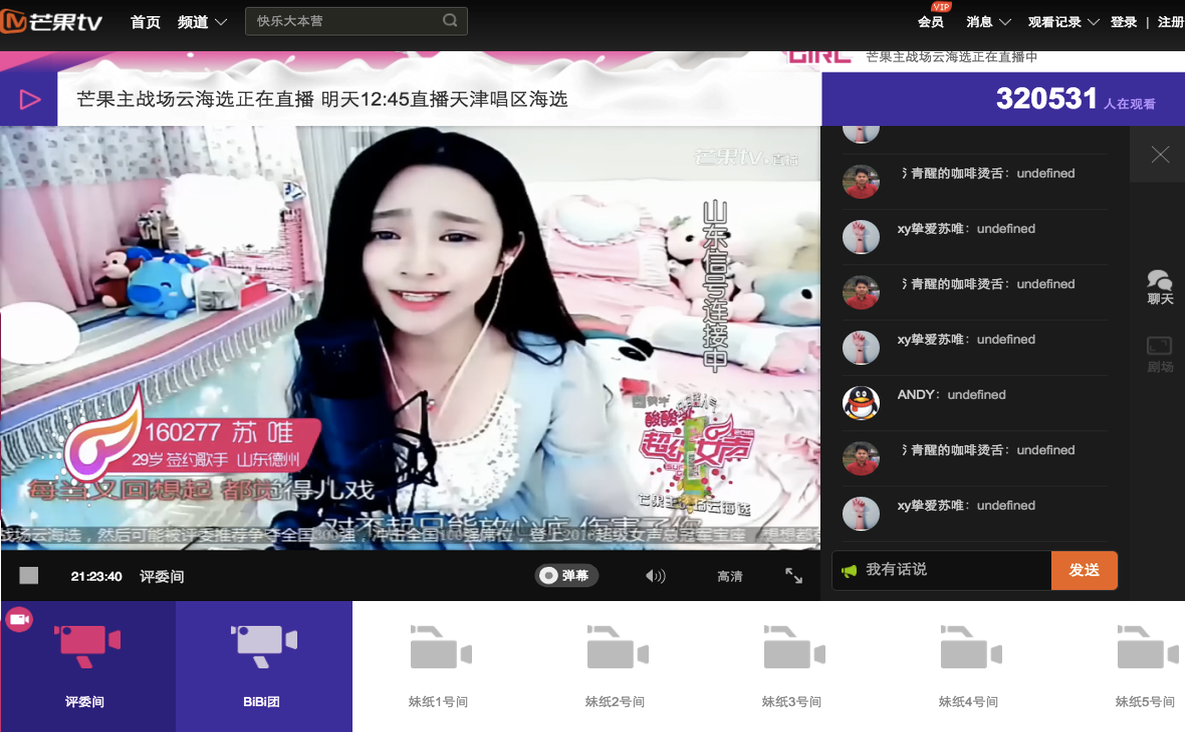Our content partner Technode presented their top 10 live streaming stories for 2016 (including one originally from CFI). We reprint that list for you here.
Wanghong (网红 or internet celebrity in English) have gained a lot of traction this year, fueled mostly by live streaming services. The wanghong economy has become so big that its current 2016 value is worth more than the film industry’s 2015 gross box office total, according to a report released by CBNData.
Chinese online video viewers reached 504 million, 73 percent of the total Chinese internet users, and mobile video viewers were 405 million as of 2015.
As live streaming and wanghong economy were one of the hot topics this year, TechNode has brought the top 10 stories from the live streaming market.
1. Live Concert Streaming Is Taking Off In China
A flock of Chinese tech behemoths entered the live concert streaming business beginning in 2014. LeTV charges 20-30 RMB (3-5 USD) for monthly subscribers and has generated a total of more than 2 million RMB (320,000 USD) in sales for one two-day concert.
2. China Has Finally Seen Explosive Growth In Short Original Videos
China’s YouTube will come out, and its main stage will be on mobile, such as Miaopai and Meipai. Vlogger stars are beginning to emerge, including Papi Jiang and Luojisiwei. However, monetization of the videos is still in the early stage, mainly harnessing virtual gifts and advertisements.
3. A Boom In Live Streaming Apps Is Creating Chinese Internet Mega Stars
On Yizhibo, streamer Big Sister King ranks number one with 28,000 followers and 1.69 million “diamonds,” the app’s currency. What’s more, filmmakers are using the technology to build buzz in the early stages of a movie’s production.
4. Virtual Gifts Are Still The Top Earner In China’s Live Video Streaming Market
Chinese live video streaming website later spawned into a ‘virtual gift’ businesses, a model that has become as lucrative as gaming. These platforms enable viewers to reward content contributors with virtual gifts that can be purchased with real money. Virtual gifts pulled about 1.5 billion RMB (230 million USD) for Nasdaq-listed YY in the fourth quarter of 2015.
5. China Is Creating A Revolutionary Talent Show Format Online
Mango TV, the video streaming service of the Hunan Broadcasting System, kicked off the singing reality show Super Girls. The show introduced an online open audition that allows those auditioners to perform live from any place. Viewers can reward contestants virtual points and vote for their favorite singer online.
6. The World Of Chinese Interactive Online Video Shows
YY live video streaming has expanded its karaoke service to different sectors like gameplay, e-learning, and dating. YY’s dating service has speed dating participants on a virtual stage with a host for each dating session. Unique features from Chinese online video services include Danmu (a real-time commenting function) and virtual gifts.
7. China’s Top 10 Online Celebs And How They Commercialize Their Fame
The first group of Chinese online celebrities mainly attracted their fans through the power of language. Then the picture era came, making web stars based on their visual attractiveness. The arrival of multimedia has granted grassroots identities a more convenient way to build up their fan bases.
8. China’s Live Streaming Hosts Are Motivated By Money, Not Fame
Out of 4,525 Chinese netizens surveyed, the 43 percent of those who are willing to be live stream hosts would do so for the money, according to a report released by Tencent. The second most popular response was to kill time (34.6 percent), for fun (32 percent), to share experiences (22.2 percent) or to gain followers (17.9 percent).
9. Homemade News Videos Are Booming In South Korea
South Korea has produced generations of live-streaming trends since 2006. However, the latest trend is tapping traditional new media broadcast styles to push curated content. In one video, for example, a Korean guy is arrested for making women fall in love with him by being too nice.
10. China’s Live Streaming Boom Spawns Online Celebrity Agent Industry
The earning potential of online celebrities has led to the formation of a full-fledged industry for online internet celebrity talent agencies. Yujia Entertainment, a Chinese talent agency for online celebrities, secured US$15 million in series B funding, and Yixia Technology, the parent company of Miaopai, has set up a separate department this year to run agent business.






